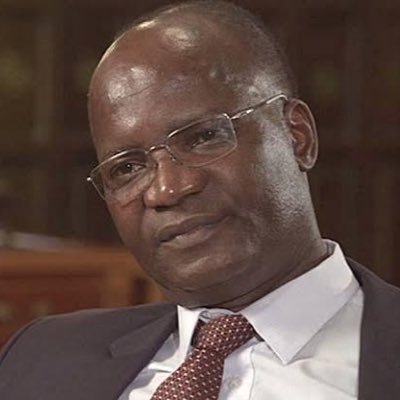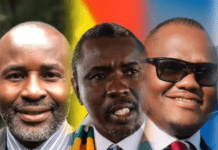Exiled former Information Minister Professor Jonathan Moyo has urged Zimbabweans to look beyond the “toxic fog of misinformation and political despair” that has clouded public discourse in 2025, saying the nation’s genuine progress is being systematically overshadowed by what he called “amoral politics.”
In a detailed post on his X (formerly Twitter) profile titled “Reality Check: Zimbabwe’s Shining Triumphs in 2025, Eclipsed by Doom-and-Gloom Narratives,” Moyo argued that the year should have been celebrated as a turning point in Zimbabwe’s modern history — a year of national resurgence and international re-engagement — but instead has been “hijacked by lies, fabrications, and coup fantasies reminiscent of 2017.”
“Beneath this toxic fog lies a nation surging forward — from global sporting triumphs to improved food security, economic rebounds, and international accolades,” wrote Moyo.
“Zimbabwe hasn’t just turned a corner; it’s charging ahead. Yet the country’s progress has been buried under unrelenting negativity fuelled by political self-interest.”
Moyo pointed to a series of milestones that, in his view, should have united the country around a renewed sense of pride and confidence. He celebrated Kirsty Coventry’s election as President of the International Olympic Committee — the first African and first woman to lead the global sports body — as a moment that catapulted Zimbabwe onto the world stage as a source of exceptional talent and leadership.
He argued that Coventry’s appointment was more than symbolic; it represented Zimbabwe’s return to global respectability and provided a platform for sports diplomacy, youth empowerment, and cultural influence. Yet, he lamented, the achievement had been drowned out by domestic political hostility and cynicism, emblematic of what he described as an “amoral political culture” that thrives on tearing down rather than building up.
The same, Moyo said, applied to the country’s dramatic recovery in food security following years of drought and instability. Citing World Food Programme data, he noted that maize meal was now available in nearly all monitored markets, prices had fallen sharply, and the new Zimbabwe Gold (ZWG) currency had stabilised purchasing power. “This is not propaganda,” he said, “but a measurable improvement in household welfare.”
He also referred to the economy’s strong rebound, with projections from global financial institutions showing 6% real GDP growth for 2025 — one of the best in the region. He attributed this to fiscal discipline, improved agricultural yields, and expanding mining and ICT sectors. “By any objective measure,” Moyo wrote, “Zimbabwe’s economy is stabilising, but the success is drowned by those invested in narratives of failure.”
Turning to geopolitics, Moyo highlighted the U.S. House of Representatives’ Bill H.R. 5300, tabled in September 2025, which proposes repealing the long-standing Zimbabwe Democracy and Economic Recovery Act (ZDERA) — the sanctions law that has restricted access to global credit for more than two decades. He described this as a potential breakthrough that could unlock billions in infrastructure and social development funding if Zimbabwe maintains political stability. Yet, he added, this monumental progress has received little recognition amid the noise of domestic political hostility.
Moyo also referenced Forbes magazine’s selection of Zimbabwe as the world’s top travel destination for 2025, citing record spikes in international travel searches and rising tourism flows to Victoria Falls, Hwange, and the Eastern Highlands. He called it a “reputational windfall” that could reshape Zimbabwe’s image globally, but again noted that it had been dismissed by detractors who “thrive on despair rather than development.”
At the heart of Moyo’s critique was the concept of “amoral politics”, which he drew from political scientist Edward C. Banfield’s 1958 classic, The Moral Basis of a Backward Society.
Banfield described “amoral familism” — a culture in which individuals act solely for the short-term benefit of their family at the expense of collective progress. Moyo applied this to Zimbabwe’s current political environment, describing it as a space where factions, parties, and personalities prioritise power, access, and personal gain over national development.
“Amoral politicians prioritise their political families — parties, clans, and networks — over the national interest,” Moyo wrote.
“They thrive on misinformation and division to ensure Zimbabweans never unite for the common good.”
He argued that Zimbabwe’s public discourse has become dominated by actors who masquerade as democrats and free-speech advocates but in practice “police thought and punish dissent.” According to Moyo, they apply principles of human rights and democracy selectively, defending freedoms only within their echo chambers while demonising anyone outside them as corrupt, criminal, or illegitimate.
This moral decay, he said, explains why even Zimbabwe’s most positive developments are quickly turned into political fodder. “Negativity has become currency,” he observed, “and those who trade in it are rewarded by attention, outrage, and fear.”
Moyo concluded his post with an appeal for Zimbabweans to reclaim the national narrative and celebrate their progress with unity of purpose. He said that 2025 should be remembered not for the gloom fabricated by politicians and their social media influencers, but as a year of renewal — a year when Zimbabwe began to move forward decisively.
“Zimbabwe’s achievements are not anomalies,” he wrote. “They are proof of a nation rising — of a people determined to defy the merchants of despair. This year should be remembered not for the noise of amoral politics, but for the quiet determination of a country reclaiming its future.”
Through his post, Moyo appeared to position himself once again as a voice of intellectual critique within Zimbabwean politics — warning that unless the nation confronts the corrosive influence of amoral politics, its progress will continue to be buried beneath its own pessimism.










